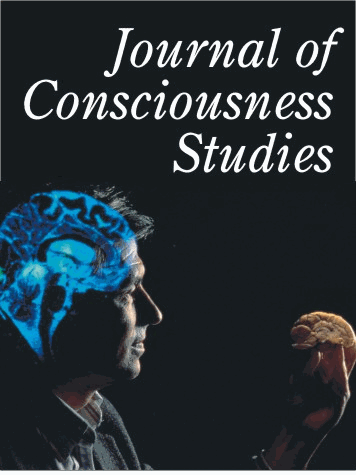


The Landscape of Introspection, first published as a special issue of the Journal of Consciousness Studies, offers an informed, contemporary, and challenging view of what introspection is – and could be.

Galen Strawson has been on the front line of the battlefield on the topic of panpsychism since the 1990s. This new edition of this seminal book (originally published in 2006) contains several new postscripts on the topic of panpsychism, and Strawson's 'realistic monism' in particular.

This volume, originally a special issue of the Journal of Consciousness Studies, uses the recent writings of Philip Goff as a jumping-off point for discussions of panpsychism — the idea that consciousness is a fundamental and pervasive aspect of our universe that cannot be understood in other, more basic, terms.

This book, a reprint of a special issue of the Journal of Consciousness Studies, highlights some excellent examples of the complex nature of first-person thoughts as they figure in linguistics, autism, thought insertion in schizophrenia, and the phenomenon of mental autonomy.

Illusionism is the view that phenomenal consciousness is an illusion. This book is a reprint of a special issue of the Journal of Consciousness Studies devoted to this topic. It takes the form of a target paper by the editor, followed by commentaries from various thinkers representing various academic disciplines.

Volume combining two special issues of the Journal of Consciousness Studies on the philosophical aspects of a possible artificial intelligence singularity.

This volume addresses the question of what it is like to be depressed. Despite the vast amount of research that has been conducted into the causes and treatment of depression, the experience of depression remains poorly understood.

This special issue of the Journal of Consciousness Studies is the sequel to Ten Years of Viewing from Within, commemorating the tenth anniversary of the publication of The View from Within, where Francisco Varela in collaboration with Jonathan Shear designed the foundations of a research program on lived experience.

A special issue of the Journal of Consciousness Studies debating the merits of Russell Hurlburt's technique of Descriptive Experience Sampling (DES) as a means of accessing inner experience.

A special issue of the Journal of Consciousness Studies to mark the centenary of the death of the pioneer psychologist William James.

Ten years on from The View From Within, Claire Petitmengin has organized a collection of essays that examine and refine the research program on first-person methods defined in The View from Within, with contributions based on empirical research.

This volume, which is a special issue of the Journal of Consciousness Studies, brings together new work by scholars from a range of disciplines whose aim is to clarify, develop and challenge the claim that folk psychology may be importantly - perhaps even constitutively - related to narrative practices.

Emotion experience has failed to date to gain a central place in the study of consciousness. This special issue of the Journal of Consciousness Studies presents the most recent views on the matter, with discussions of several aspects of emotion experience.

Rupert Sheldrake outraged the scientific establishment in the early 1980s with his hypothesis of morphic resonance. In this book Sheldrake summarizes his case for the 'non-visual detection of staring'. His claims are scrutinised by fourteen critics, to whose commentaries he then responds.

In this special issue of the Journal of Consciousness Studies David Hodgson defends a simple, robust account of the plain person's position on free will, and intends it to support equally robust views of personal responsibility for conduct.

Third of a three-volume series of the "Journal of Consciousness Studies", which asks if it is possible to take a natural science approach to art and uncover general laws of aesthetic experience, or is that taking reductionism too far?

This collection of essays shows that a simple division into 'sceptics' and ‘believers’ for the paranormal cannot be made. The real struggle, for all researchers, is not with each other, but to get a secure hold on the subject itself.

Second of a three-volume series of the "Journal of Consciousness Studies", which asks if it is possible to take a natural science approach to art and uncover general laws of aesthetic experience, or is that taking reductionism too far?

First of a three-volume series of the "Journal of Consciousness Studies", which asks if it is possible to take a natural science approach to art and uncover general laws of aesthetic experience, or is that taking reductionism too far?